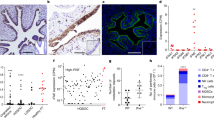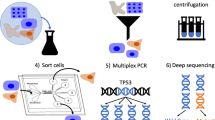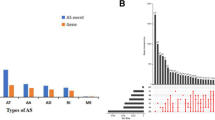Abstract
In women with ovarian cancer, suppression of components of the immune system may promote tumour development. Previous studies in ovarian cancer have demonstrated that decreased expression and function of the T-cell receptor (TcR)-associated signal transducing zeta-chain correlates with deficient immune responsiveness of T cells. In this study, sera and ascitic fluids obtained from woman with advanced ovarian cancer were found to suppress the expression of TcR-associated zeta chain. This suppression of zeta chain expression was dose-dependent and was not observed with biologic fluids obtained from healthy women.
The factor responsible for the loss of zeta chain was purified from ascites and characterized as a protein with an appropriate molecular weight of 14 kD. Suppression of T-cell TcR-zeta was specific, since neither lck nor ZAP-70 expression was affected, while zeta chain was almost completely suppressed. This selective suppression of TcR-zeta expression by the 14 kD ascites-derived factor was shown to operate at the mRNA level. By defining the mechanism through which this protein modulates TcR-zeta chain levels, it might be possible to ultimately prevent the suppressive influences of the tumour microenvironment and restor immune competence in patients with ovarian carcinoma. © 2001 Cancer Research Campaign http://www.bjcancer.com
Similar content being viewed by others
Article PDF
Change history
16 November 2011
This paper was modified 12 months after initial publication to switch to Creative Commons licence terms, as noted at publication
References
Bast RC and Knapp RC (1984) Immunologic approaches to the management of ovarian carcinoma. Sem Oncol 11: 264–274
Braun DP and Harris JE (1983) Serial immune function testing to predict clinical disease relapse in patients with solid tumors. Cancer Immunol Immunoth 15: 165–171
Brooks B and Rees RC (1988) Human recombinant IL-4 suppresses the induction of human IL-2 induced lymphocyte activated killer activity. Clin Exp Immunol 74: 162–165
Brown R, Clugston C, Burns P, Edlin A, Vasey P, Vojtesek B and Kaye SB (1993) Increased accumulation of p53 protein in cisplatin resistant ovarian cell lines. Int J Cancer 55: 678–684
Chan AC, Desai DM and Weiss A (1994) The role of protein tyrosine kinases and protein tyrosine phosphatases in T cell antigen receptor signal transduction. Ann Rev Immunol 12: 555–592
deGruijl TD, Bontkes HJ, Peccatori F, Gallee MPW, Helmerhorst TJM, Verheijen RHM, Aarbiou J, Mulder WMC, Walboomers JMM, Meijer CJLM, van de Vange N and Scheper RJ (1999) Expression of CD3-ζ on T-cells in primary cervical carcinoma and metastasis-positive and negative pelvic lymph nodes. Brit J Cancer 79: 1127–1132
Hellstrom KE and Hellstrom I (1991) Principles of tumor immunity: Tumor antigens. Biologic therapy of cancer, DeVita VT, Hellman S, Rosenberg SA (eds) pp. 35–52, Lippincott: New York
Hermans MHA and Malissen B (1993) The cytoplasmic tail of the T cell receptor ζ chain is dispensable for antigen-mediated T cell activation. Eur J Immunol 9: 2757–2762
Irving BA, Chan AC and Weiss A (1993) Functional characteristics of a signal transducing motif present in the T cell antigen receptor ζ chain. J Exp Med 177: 1093–1103
Kersh EN, Kersh GJ and Allen PM (1999) Partially phosphorylated T cell receptor ζ molecules can inhibit T cell activation. J Exp Med 190: 1627–1636
Kuss I, Saito T, Johnson JT and Whiteside TL (1999) Clinical significance of decreased z chain expression in peripheral blood lymphocytes of patients with head and neck cancer. Clin Cancer Res 5: 329–334
Lai P, Rabinowich H, Crowley-Nowick PA Bell MC, Mantovani G and Whiteside TL (1996) Alterations in expression and function of signal-transducing proteins in tumor-associated T and natural killer cells in patients with ovarian cancer. Clin Cancer Res 2: 161–173
Laemmli UK (1970) Cleavage of structural proteins during the assembly of the head of the bacteriophage T4. Nature 227: 680–685
Liossis SC, Ding XC, Xuan Z, Dennis GJ and Tsokos GC (1998) Altered pattern of TCR/CD3-mediated protein-tyrosyl phosphorylation in T cells from patients with systemic lupus erythematosus: Deficient expression of the T cell receptor zeta chain. J Clin Invest 101: 1448–1457
Maccalli C, Pisarra P, Wegetti C, Sensi M, Parmiani G and Anichini A (1999) Differential loss of T cell signaling molecules in metastatic melanoma patients’ T lymphocyte subsets expressing distinct TCR variable regions. J Immunol 163: 6912–6923
Mulder WMC, Bloemena E, Stukart MJ, Kummer JA, Wagstaff J and Scheper RJ (1997) T-cell receptor zeta and granzyme B expression in mononuclear cell infiltrates in normal colon mucosa and colon carcinoma. Gut 40: 113–119
Old LJ (1981) Cancer immunology: The search for specificity-G. H. A. Clowes Memorial lecture. Cancer Res 41: 361–375
Rabinowich H, Suminami Y, Reichert TE, Crowley-Nowick P, Bell M, Edwards R and Whiteside TL (1996) Expression of cytokine genes or proteins and signaling molecules in lymphocytes associated with human ovarian carcinoma. Int J Cancer 68: 276–284
Rabinowich H, Reichert TE, Kashii Y, Gaastman BR, Bell MC and Whiteside TL (1998) Lymphocyte apoptosis induced by Fas ligand-expressing ovarian carcinoma cells: implicates for altered expression of T cell receptor in tumor associated lymphocytes. J Clin Invest 101: 2579–2588
Reichert TE, Rabinowich H, Johnson JT and Whiteside TL (1998) Immune cells in the tumor microenvironment: Mechanisms responsible for signaling and functional defects. J Immunother 21: 295–306
Shores EW, Tran T, Grinberg A, Sommers CL, Shen H and Love PE (1997) Role of the multiple T cell receptor (TCR)-ζ chain signaling motifs in selection of the T cell repertoire. J Exp Med 185: 893–900
Suminami Y, Elder EM, Lotze MT and Whiteside TL (1995) In situ interleukin-4 gene expression in cancer patients treated with genetically modified tumor vaccine. J Immunother 17: 238–248
Tartour E, Latour S, Mathiot C, Thiounn N, Mosseri V, Joyeux I, D'Enghien CD, Lee R, Debre B and Fridman WH (1995) Variable expression of CD3-ζ chain in tumor-infiltrating lymphocytes derived from renal cell carcinoma: Relationship with TIL phenotype and function. Int J Cancer 63: 205–212
Yasumura S, Amoscato A, Hirabayashi H, Lin WC and Whiteside TL (1994) Proliferation of hematopoietic cell lines induced by a soluble factor derived from human squamous cell carcinomas of the head and neck. Cancer Immunol Immunother 39: 407–415
Zea AH, Cutri BD, Longo DL, Alvord WG, Strobl SL, Mizoguchi H, Creekmore SP, O'Shea JJ, Powers GC, Urba WJ and Ochoa AC (1995) Alterations in T cell receptor and signal transduction molecules in melanoma patients. Clin Cancer Res 1: 1327–1335
Author information
Authors and Affiliations
Rights and permissions
From twelve months after its original publication, this work is licensed under the Creative Commons Attribution-NonCommercial-Share Alike 3.0 Unported License. To view a copy of this license, visit http://creativecommons.org/licenses/by-nc-sa/3.0/
About this article
Cite this article
Taylor, D., Bender, D., Gerçel-Taylor, Ç. et al. Modulation of TcR/CD3-zeta chain expression by a circulating factor derived from ovarian cancer patients. Br J Cancer 84, 1624–1629 (2001). https://doi.org/10.1054/bjoc.2001.1847
Received:
Revised:
Accepted:
Published:
Issue date:
DOI: https://doi.org/10.1054/bjoc.2001.1847
Keywords
This article is cited by
-
Tumor-derived exosomes regulate expression of immune function-related genes in human T cell subsets
Scientific Reports (2016)
-
The mechanisms by which polyamines accelerate tumor spread
Journal of Experimental & Clinical Cancer Research (2011)
-
Exosomes/microvesicles: mediators of cancer-associated immunosuppressive microenvironments
Seminars in Immunopathology (2011)
-
The detection, treatment, and biology of epithelial ovarian cancer
Journal of Ovarian Research (2010)
-
Increased blood spermine levels decrease the cytotoxic activity of lymphokine-activated killer cells: a novel mechanism of cancer evasion
Cancer Immunology, Immunotherapy (2007)



